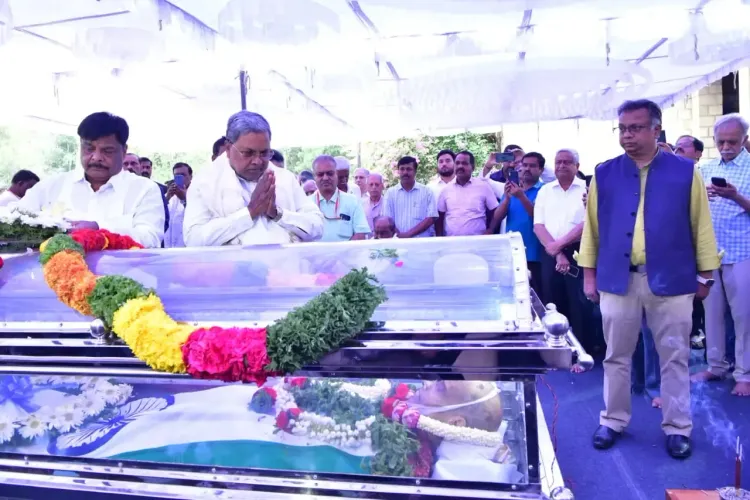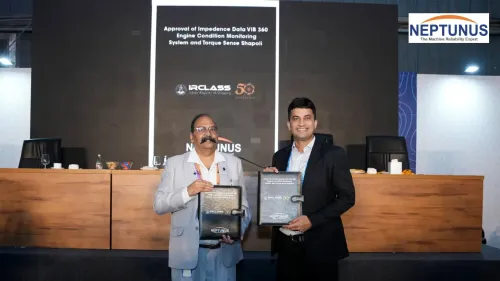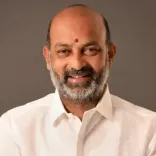How Did Former ISRO Chief Kasturirangan's Demise Impact Science and the Nation?

Synopsis
Key Takeaways
- Dr. Kasturirangan's contributions to space technology were transformative for India.
- He played a crucial role in the development of the PSLV and GSLV.
- His influence on education through the NEP, 2020, will shape future policies.
- He received multiple prestigious awards for his work in science.
- Dr. Kasturirangan's legacy will inspire future generations.
Bengaluru, April 27 (NationPress) Karnataka Chief Minister Siddaramaiah stated on Sunday that the passing of former Indian Space Research Organisation (ISRO) Chairman and Padma Shri recipient, K. Kasturirangan, represents an irreparable loss to the nation, particularly within the realm of science.
After paying his final respects to the late Dr. Kasturirangan, Siddaramaiah remarked, "He was an esteemed scientist whose extensive contributions to the field of space will be remembered. He held the position of ISRO Chairman for an extended period, and his influence on education remains unforgettable."
Moreover, he noted that Dr. Kasturirangan received several prestigious national awards, including the Karnataka Rajyotsava Award from the Karnataka government.
Emphasizing Dr. Kasturirangan's substantial contributions to environmental initiatives and the state of Karnataka, Siddaramaiah mentioned that steps are already in place to honor his legacy.
"I pray to God to grant eternal peace to his soul," the Chief Minister expressed.
Deputy Chief Minister D.K. Shivakumar stated, "With the passing of renowned scientist Dr. Kasturirangan, we have lost a vast treasure of knowledge. I pray for his soul to rest in peace." Shivakumar spoke to the media on Sunday after paying his tributes to Dr. Kasturirangan.
He further remarked, "Dr. Kasturirangan made courageous choices to safeguard our land and forests. As one of the greatest scientists in India and globally, he significantly contributed to society in his roles as Chairman of the Knowledge Commission and as a Rajya Sabha member. While death is inevitable, it's the legacy and impact we leave behind that truly matters," said the Deputy CM.
He recalled, "The government will reflect on his contributions and take measures to preserve them. His influence in elevating ISRO's status is monumental."
B.Y. Vijayendra, State BJP President and MLA, commented, "Dr. K. Kasturirangan was a distinguished figure among India's space scientists, having received numerous accolades, including the Padma Vibhushan, Padma Bhushan, Padma Shri, and the Karnataka Rajyotsava Award."
After paying his respects, Vijayendra addressed the media. He recalled that during B.S. Yediyurappa's tenure as Chief Minister, Dr. Kasturirangan provided valuable counsel to the then-BJP government through the Knowledge Commission and on other occasions.
He also mentioned Dr. Kasturirangan's service as a Rajya Sabha member.
"We have lost such a senior and eminent individual. I pray for the peace of his soul and hope that God grants strength to his family, the scientific community, and the countless students who admired him to endure this loss," Vijayendra expressed.
Dr. Krishnaswamy Kasturirangan, who passed away on Friday morning, was a distinguished Indian space scientist and visionary leader who greatly advanced India's space and education sectors.
His invaluable contributions to both sectors have left an indelible mark.
Dr. Kasturirangan died on Friday at the age of 84 in Bengaluru, and his visionary leadership in space exploration and educational reform has profoundly influenced India's scientific and academic landscapes.
Born on October 24, 1940, in Ernakulam, Kerala, Dr. Kasturirangan completed his undergraduate and postgraduate studies in physics at the University of Mumbai. He later earned his doctorate in experimental high-energy astronomy from the Physical Research Laboratory in Ahmedabad.
His exemplary work garnered numerous accolades, including the Padma Shri (1982), Padma Bhushan (1992), and Padma Vibhushan (2000) from the Indian government.
Dr. Kasturirangan served as ISRO Chairman from 1994 to 2003, overseeing several pivotal developments.
He was instrumental in the development and operationalization of the Polar Satellite Launch Vehicle (PSLV) and the Geosynchronous Satellite Launch Vehicle (GSLV), promoting India’s self-reliance in space technology.
He supervised the launches of key remote sensing satellites like IRS-1C and IRS-1D, and advanced INSAT communication satellites and ocean observation satellites such as IRS-P3 and IRS-P4.
Under his leadership, ISRO initiated studies that laid the groundwork for India’s first lunar mission, Chandrayaan-1.
Apart from his contributions to space science, Dr. Kasturirangan played a significant role in India's education sector.
He chaired the committee responsible for drafting the National Education Policy (NEP), 2020, aimed at reforming India's educational framework.
He served as Vice-Chancellor of Jawaharlal Nehru University and as Chairman of the Karnataka Knowledge Commission, influencing higher education and research policies.
Dr. Kasturirangan was also a nominated member of the Rajya Sabha from 2003 to 2009 and participated in the Planning Commission of India, contributing to national policy-making in science and education.








